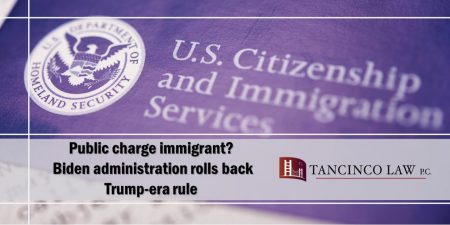The Biden administration is moving towards loosening requirements for permanent residency which took effect under former president Donald Trump.
A new Department of Homeland Security regulation will make it easier for some immigrants to evade being disqualified from obtaining residency through the “public charge” principle.
Immigrants are labeled “public charge” if they are seen to be more of an economic burden than a contributor to the United States.
Under president Trump, the government expanded the definition of benefits so that these could be used against immigrants seeking permanent residency.
With the new regulation – which is coming this December 23, 2022 – the United States Citizenship and Immigration Services (USCIS) will only consider immigrants as “public charge” if “they are likely at any time to become primarily dependent on the government for subsistence.”
While it is months away, the Biden administration has stopped enforcing the public charge rules since the beginning of its term. With the upcoming regulation, the fear of many immigrants who could be labeled as public charge will be abated.
On one hand, the Trump administration then argued that their policy would push immigrants to work harder, but advocates have condemned the policy as too harsh for the vulnerable immigrant population.
There are hundreds of thousands of immigrants who seek green cards per year in the United States. There are also those who get residency through being refugees or getting asylum, which are categories where public charge rules do not apply.
For more information about the new regulation, consult with your trusted lawyer.


